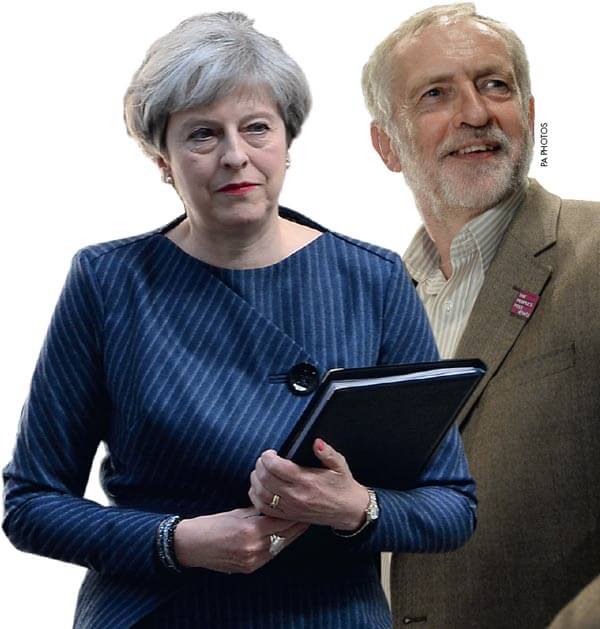What’s the difference?
Krow Communications versus M&C Saatchi. Number 17 by the Nielsen billings versus number 24. A “five” score in Campaign’s annual School Reports issue versus a “four”. Humility versus chutzpah. Which would you rather have on your side in a gladiatorial, winner-takes-all contest?
The Labour Party has chosen Krow, reigniting the relationship with the agency’s co-founder Malcolm White, who has worked previously with the shadow communications team. The Conservatives are in talks with M&C, whose founders have long associations with the party. So both can offer a continuity of expertise.
Beyond that, though, how different are these agencies and their approaches to winning the heart of the consumer – or, in this case, voter? From their declared philosophies, they would appear to be poles apart.
Krow plays it thoughtful, with its promise to diligently “work backwards” from the ultimate objective. So deeply does it feel about this that it has encoded it in its name, like a cryptic crossword clue: literally, “work” backwards.
In contrast, M&C Saatchi jumps straight to the end deliverable, with its belief in “brutal simplicity” – which it repeats with brutal frequency. It’s about the big idea, not the journey – the ultimate communications currency that carries all.
How much further apart can you get? Chalk and cheese. Except it’s not. If you worked with both agencies, you’d find them far more similar than different. Just as any two top 30 agencies would be. Just like the two main political parties used to be.
The crucial test is whether either would take issue with the other’s position and vow to do the opposite. They wouldn’t. You won’t find Krow – or any other agency out there – declaring that it favours “small, complex ideas”. And you won’t find M&C – or any of its top 30 rivals – leaping straight to execution without a second’s thought about the objective behind it.
 Agencies like to play up their differences but know not to get carried away. Like political parties, they operate in a highly artificial market where too much distinction is a drawback. The retained agency system, with its veto on conflicting accounts, means that no agency with ambitions for scale can afford to sidle itself into a niche.
Agencies like to play up their differences but know not to get carried away. Like political parties, they operate in a highly artificial market where too much distinction is a drawback. The retained agency system, with its veto on conflicting accounts, means that no agency with ambitions for scale can afford to sidle itself into a niche.
So while declared agency approaches may need to give the whiff of distinction, they will tend to converge around the established tenets of the discipline and be broad enough to appeal to whoever happens to be walking through the conference-room door.
Clients, for their part, will politely listen to agency philosophies but pay more heed to the body language that attends their delivery. Many have confessed to me, after a couple of days of credentials meetings, that they can’t remember which one espoused what – but they nevertheless developed a sense of who they could work with and which seemed more on top of their game. It’s not difference that wins the day, but competence.
For UK political parties with ambitions to govern, the market is even more cruelly artificial. They, too, need to play that game of articulating a difference and yet keeping it in check in order to appeal to a broad mass of people. “They’re all the same” used to be the voters’ lament, but convergence was a necessary outcome of the first-past-the-post system, which forces a party to win votes beyond its natural support base.
Labour in its current guise has reversed that convergence, increasing the intensity of its support among a narrow tribe. But a general election is no place for a segmentation strategy. There are no heavy users at the ballot box, where an impassioned supporter has exactly the same clout as someone who barely cares. Extreme difference doesn’t win power; perceived competence does.
As their partners in this winner-takes-all contest, both agencies will perform well – and it would be hard to name a shop in the top 30 that wouldn’t. We might be able to point to the smarter strategy after the event or single out the most memorable ad – but the difference is likely to be minor. Marketers are fortunate that the communications industry is long on ability even though they sometimes grumble that agencies are much the same.
So: Krow or M&C Saatchi? You might have an instinctive preference for one, a feel for the nuances between them – especially if you happen to be an ad biz insider. But that is the communications equivalent of the Westminster bubble.
For the average, mainstream marketer, they are chalk and chalk. Credible receptacles of budgets and trust. Proven islands of competence. When it comes to the difficulty of persuading the electorate of the competence of their respective political clients, though, there’s no doubt that you’re looking at one hell of a difference.
Nothing is impossible
Saatchi & Saatchi
When a truth is well told, it changes things
McCann
You have to lead the change if you don’t want to be led by the change
Publicis
When the world zigs, zag
Bartle Bogle Hegarty
We are obliged, both morally and commercially, to make the world more interesting
FCB Inferno
If you’re not disrupting, you’re conforming. If you’re conforming, you’re going unnoticed
TBWA
Come in ignorant every day
Wieden & Kennedy
